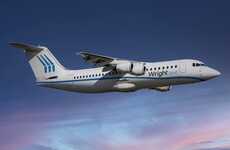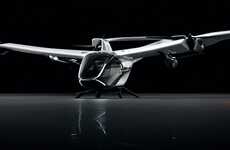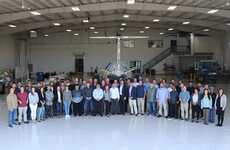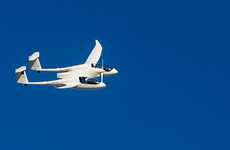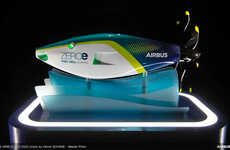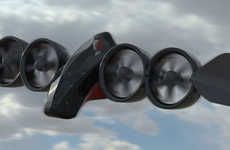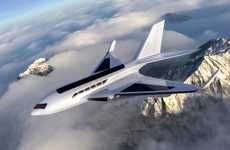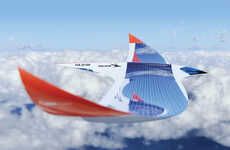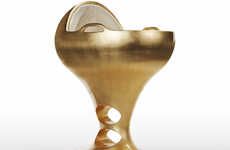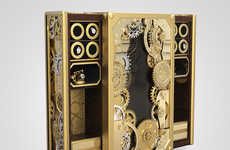
The E-Fan is a Compact & Energy-Efficient Electric Aircraft
Rahul Kalvapalle — May 14, 2014 — Autos
References: airbus-group & gizmag
The E-Fan is an experimental electric trainer airplane developed by Airbus to demonstrate electric aircraft technology. The plane is also being used as the starting point for the development of a pair of electric training aircraft
The E-Fan is only 6.7 meters long and has a wingspan of 9.5 meters, and is built with an all-composite construction. It is equipped with two ducted, variable pitch fans that are spun by two electric motors with a combined power of 60 Kilowatts. The ducting increases the engine thrust while reducing noise.
The E-Fan features an energy management system that automatically controls electrical systems, easing the workload of flight instructors and students.
Airbus plans to eventually produce two market versions of the aircraft, the two-seater battery-powered E-Fan 2.0 and the four-seater hybrid E-Fan 4.0.
The E-Fan is only 6.7 meters long and has a wingspan of 9.5 meters, and is built with an all-composite construction. It is equipped with two ducted, variable pitch fans that are spun by two electric motors with a combined power of 60 Kilowatts. The ducting increases the engine thrust while reducing noise.
The E-Fan features an energy management system that automatically controls electrical systems, easing the workload of flight instructors and students.
Airbus plans to eventually produce two market versions of the aircraft, the two-seater battery-powered E-Fan 2.0 and the four-seater hybrid E-Fan 4.0.
Trend Themes
1. Electric Aircrafts - The development of more electric aircrafts for different industries, such as logistics and defense.
2. Miniaturization of Aircrafts - Miniature aircrafts with different purposes could be developed, such as drones for inspection and maintenance of infrastructure.
3. Energy Management Systems - The development of new energy management systems that optimize electricity consumption in different applications, such as electric boats and small planes.
Industry Implications
1. Aviation - The adoption of electric aircraft technology in the aviation industry could reduce costs and improve energy efficiency.
2. Environmental Technology - The development of more energy-efficient aircrafts could benefit the environmental technology industry, by reducing emissions and energy consumption.
3. Education - The adoption of technology such as energy management systems could be used to improve education tools in different fields, such as aviation and engineering.
2
Score
Popularity
Activity
Freshness


